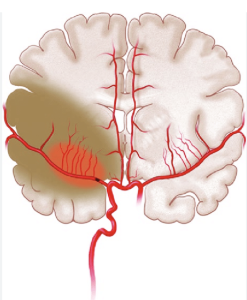In a patient-level meta-analysis and external validation of the score Koji Tanaka et al. from the University of Calgary, Altair Biostatistics, St. Louis Park; Stanford University, Cooper University Health Care, Camden; Emory University, Atlanta; Barrow Neurological Institute, Phoenix; Federal University of Rio Grande do Sul, Porto Alegre; Hospital Vall d’Hebron, Barcelona; Prisma Health Upstate, Greenville; University at Buffalo, Buffalo; UCLA, Los Angeles published in the Neurology Journal to externally validate the HERMES-24 score for outcome prediction in patients with anterior circulation large vessel occlusion treatment in the late time window (beyond 6 hours from last known well). The HERMES-24 score demonstrated excellent predictive ability for 90-day functional outcomes and mortality across both EVT and control groups. The score maintained high AUC (>0.80) across all endpoints and treatment arms, confirming its robustness beyond early-window interventions 1).
Critical Review:
This well-powered meta-analysis utilizes pooled patient-level data from six late-window EVT trials, effectively excluding any overlap with the original HERMES cohort to reduce bias. The investigators clearly articulate the methodology and maintain rigorous exclusion criteria to ensure external validity. The study benefits from its straightforward scoring system (age/10 + NIHSS at 24h), which is practical for clinicians. However, the derivation and validation are still restricted to highly selected trial populations—limiting
